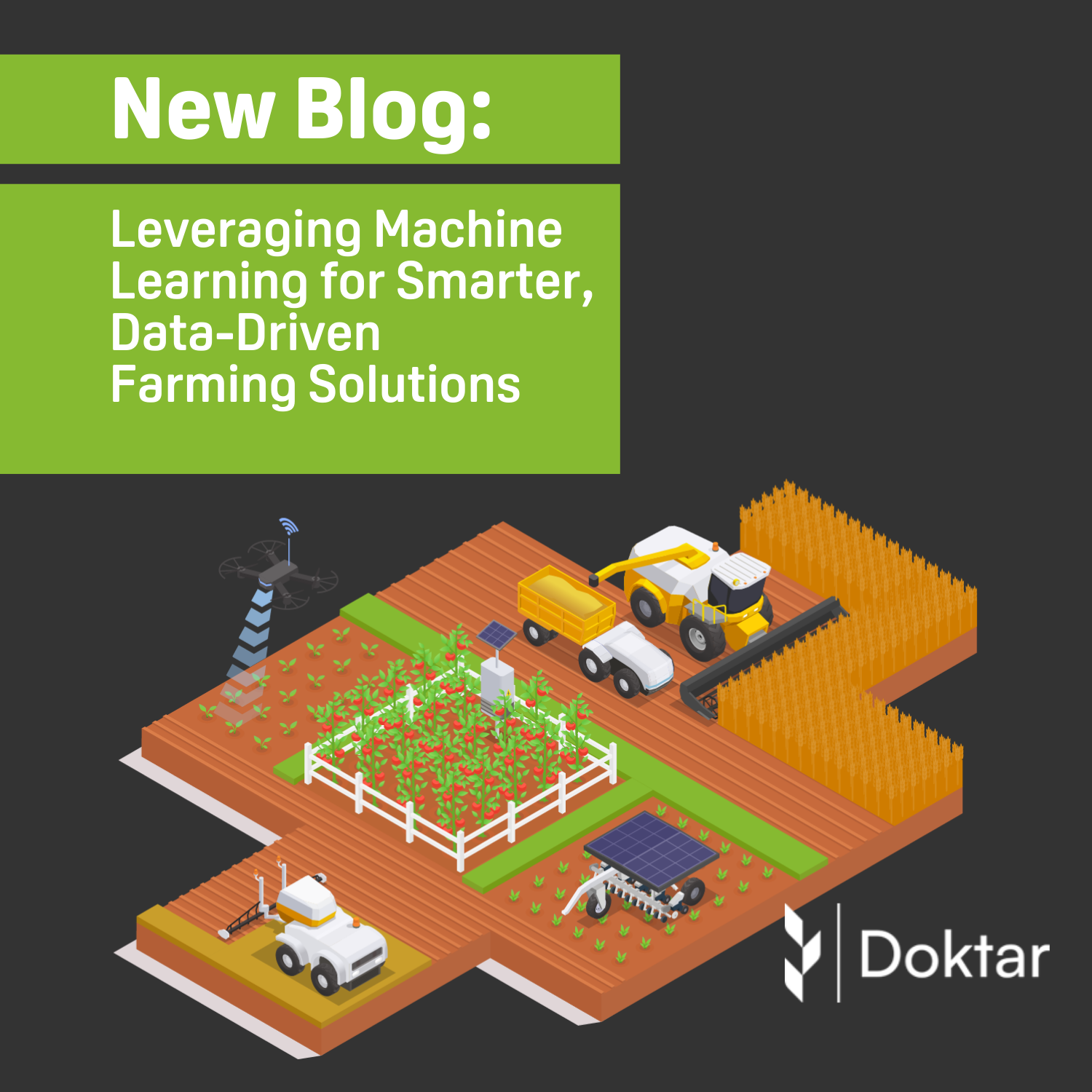

Leveraging Machine Learning for Smarter, Data-Driven Farming Solutions
Machine learning is revolutionizing agriculture by analyzing vast datasets to enhance decision-making, optimize resource use, and boost productivity. Doktar leverages this technology through tools like CropMap, Orbit, and Filiz, enabling predictive analytics, efficient resource allocation, and sustainable practices. With solutions tailored to pest outbreaks and climate change, Doktar empowers smarter and more resilient farming.
Published on 27 December 2024
Transforming Agriculture Through Machine Learning
The agricultural industry is undergoing a profound transformation driven by the integration of machine learning and data-driven technologies, revolutionizing the way food is cultivated, managed, and harvested. By leveraging these technologies, farmers and agribusinesses can analyze vast amounts of data collected from various sources, such as IoT sensors, satellite imagery, and weather stations, to gain precise insights into every aspect of farming operations.
These advancements allow for predictive analytics, enabling early identification of potential issues like pest outbreaks, water stress, or nutrient deficiencies and providing the ability to mitigate these challenges before they escalate. Moreover, machine learning algorithms can identify patterns and trends that inform more intelligent resource allocation, ensuring that inputs like water, fertilizer, and pesticides are used efficiently. This enhances decision-making, boosts productivity, and minimizes waste and environmental impact, paving the way for sustainable agriculture practices that address global challenges such as climate change, food security, and resource scarcity.
Doktar: Leading the AI Revolution in Agriculture
The integration of machine learning into farming represents a transformation in agriculture. AI-powered solutions renovate food production, distribution, and consumption from smart farming systems to urban innovations. As a leader, Doktar is dedicated to confidently helping farmers and agribusinesses navigate this transformation. Leveraging tools like CropMap, Orbit, Filiz, and PestTrap farmers can unlock the full potential of machine learning to improve outcomes and achieve sustainability goals. Whether through precision farming, pest management, or predictive analytics, the opportunities are endless.
Real-Time Data and Smart Farming Solutions
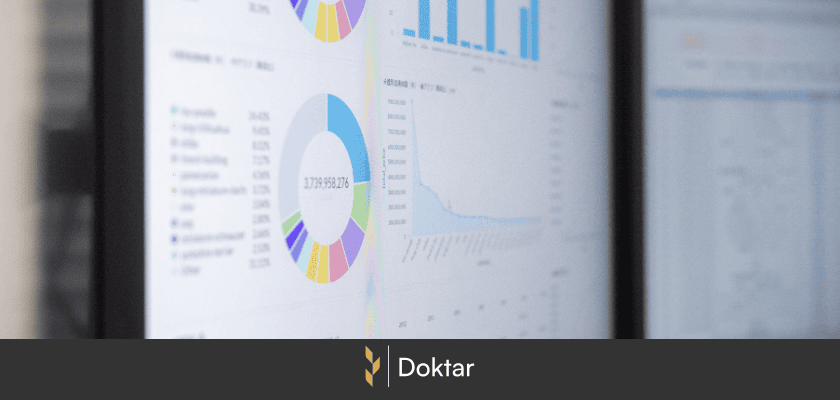
Machine learning, a subset of artificial intelligence, uses algorithms to analyze data, identify patterns, and make predictions, offering transformative solutions to complex agricultural challenges. By processing vast datasets from sources such as IoT devices and satellite imagery, machine learning enables farmers to uncover previously inaccessible insights. In agriculture, this technology unravels unprecedented potential for optimizing resource use by tailoring inputs like water, fertilizers, and pesticides to specific field conditions. It also improves crop yields through predictive analytics that guide planting schedules, irrigation timing, and harvest planning. Moreover, machine learning is critical in mitigating risks associated with climate change, pests, and diseases by providing real-time alerts and adaptive strategies to respond to these threats. With its ability to learn and improve over time, machine learning continues to evolve, creating new opportunities for sustainable agriculture and making farming more efficient and more resilient in the face of growing global challenges.
One of machine learning’s most significant benefits in agriculture is its ability to process vast amounts of data from various sources. At Doktar, we are at the forefront of this transformation, leveraging innovations to provide actionable insights and smart farming solutions that benefit farmers and agribusinesses alike. We integrate advanced machine learning algorithms with IoT devices and real-time data streams to better understand field conditions and operational needs.
Sensors embedded in smart farming systems collect information on soil conditions, weather, and crop health, while satellite imagery and IoT devices provide additional insights. Our sensor station, Filiz, complements this ecosystem by delivering hyper-local data on soil moisture, temperature, and humidity. It integrates seamlessly into smart farming systems, helping farmers make informed decisions about irrigation and resource allocation and ensuring efficiency and sustainability at every step.
These datasets are then analyzed using machine learning algorithms to predict outcomes, such as optimal planting times, irrigation needs, or pest outbreaks. Doktar’s suite of tools, such as CropMap and Orbit, harness this technology to empower farmers with precise, actionable information, putting them in control of their farming operations. By combining the power of machine learning with practical tools, Doktar transforms raw data into strategies that maximize yields and minimize waste.
Precision Agriculture: Efficiency Meets Sustainability
Precision agriculture, an approach that uses technology to monitor and manage variability within fields, is a prime example of how machine learning transforms farming. Farmers can apply inputs like water, fertilizer, and pesticides exactly where needed by analyzing soil, crop, and environmental data. Doktar’s Variable Rate Application (VRA), available through Orbit, divides fields into productivity zones, ensuring efficient resource use while minimizing environmental impact. This practice is especially crucial for achieving sustainable agriculture goals.
As previously discussed, smart farming technologies are crucial in automating repetitive tasks, allowing farmers to focus on strategic decision-making. Devices like Doktar’s Filiz sensor station and PestTrap exemplify how IoT and machine learning integration can provide real-time insights into soil moisture, temperature, and pest populations, enabling farmers to optimize irrigation and take timely actions to protect their crops. Building on these capabilities, it is essential to recognize how such technologies enhance operational efficiency and contribute to larger sustainability goals by reducing resource wastage and promoting environmentally responsible practices. By leveraging these tools, farmers can meet the demands of modern agriculture while ensuring long-term productivity and ecological balance.
Another area where machine learning is making a substantial impact is in crop health monitoring. Traditional methods of assessing crop health often require labor-intensive field visits, but with machine learning, farmers can rely on remote sensing technology to identify issues. Tools like Orbit’s NDVI-based health monitoring detect low-yield zones and anomalies in vegetation, allowing for targeted actions to improve productivity. This technology saves time and reduces the guesswork associated with traditional farming practices, providing farmers with much-needed relief from the burden of field visits.
The future of AI in agriculture also lies in predictive modeling. Machine learning algorithms can forecast weather conditions, disease outbreaks, and market trends by analyzing historical data and real-time inputs. This predictive power enables farmers to plan and make informed decisions that enhance efficiency and profitability. For instance, Doktar’s early warning systems provide disease risk forecasts based on crop types and environmental conditions, helping farmers take preventive measures and reduce crop losses.
Utilizing Predictive Power for Better Decisions
Urban farming, for example, benefits from AI-powered systems that optimize resource use in controlled environments. From vertical farming setups to rooftop gardens, machine learning ensures precise monitoring and management of light, temperature, and nutrients, making urban farming a viable solution for food security in densely populated areas.
However, the adoption of machine learning in agriculture is not without challenges. One key barrier is the availability of quality datasets. To address this, Doktar collects over 100,000 ground truth samples annually, which are real-world data points that accurately represent the conditions in a specific area. It uses these to train its machine-learning models, ensuring that the insights provided by our tools are accurate, reliable, and tailored to local conditions.
For businesses and institutions, the benefits of AI and machine learning in agriculture go beyond operational efficiency. These technologies provide valuable market insights, enabling stakeholders to adapt to changing consumer demands and optimize supply chains. Doktar’s CropMap, for example, offers detailed analytics on crop types and field boundaries, helping agribusinesses make strategic decisions.
Commitment to Sustainability

Doktar’s commitment to sustainable farming practices extends beyond technology. We help farmers adopt environmentally friendly and economically viable methods by promoting regenerative agriculture and reducing input use. Machine learning plays a vital role in identifying improvement opportunities and minimizing resource wastage, paving the way for a more efficient and sustainable future of farming.
As the future of agriculture continues to evolve, the role of machine learning will only grow more significant. At Doktar, we are committed to ensuring that every agronomic decision is informed by data and driven by intelligence. If you are ready to embrace the benefits of AI and machine learning in agriculture, contact us today to learn how our innovative solutions can transform your farming practices: https://share-eu1.hsforms.com/1KKCalDIqSMSQkLEaoaPT4w2bij27
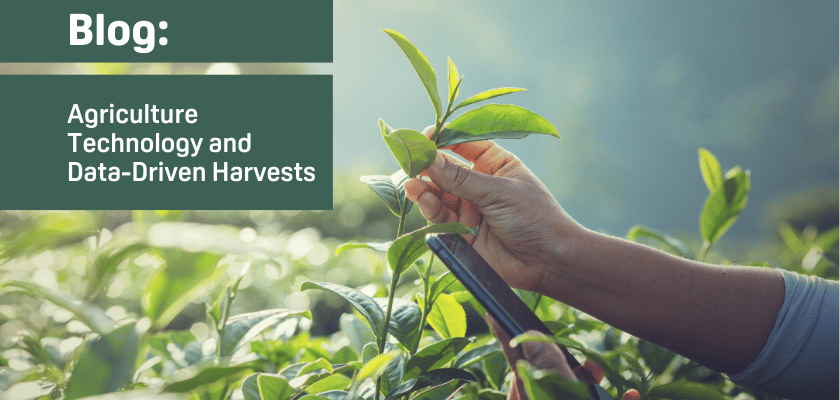
Agriculture Technology and Data-Driven Harvests
The convergence of agriculture technology and data-driven solutions represents the next frontier of innovation in farming. With companies like Doktar leading the way, farmers can leverage these advancements to improve productivity, reduce environmental impact, and secure a more sustainable future for agriculture. Whether through precision agriculture, sustainable agriculture, or cutting-edge smart agriculture technology, the future of farming is bright, and data is at the heart of this transformation. Technology's positive impact on this future should inspire and motivate us all.
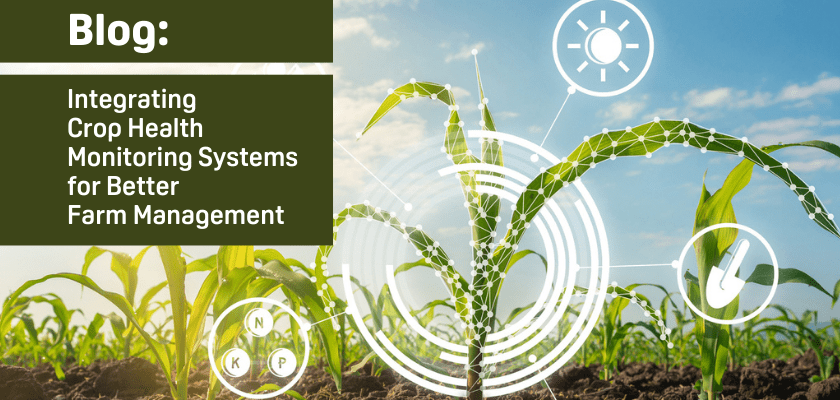
Integrating Crop Health Monitoring Systems for Better Farm Management
Crop health monitoring systems revolutionize modern agriculture by enabling real-time insights into plant health, reducing losses, and promoting sustainability. Tools like Doktar’s CropMap and Orbit integrate advanced technologies, empowering farmers with data-driven decisions. By enhancing efficiency and sustainability, these systems are essential for future-proofing agricultural operations.
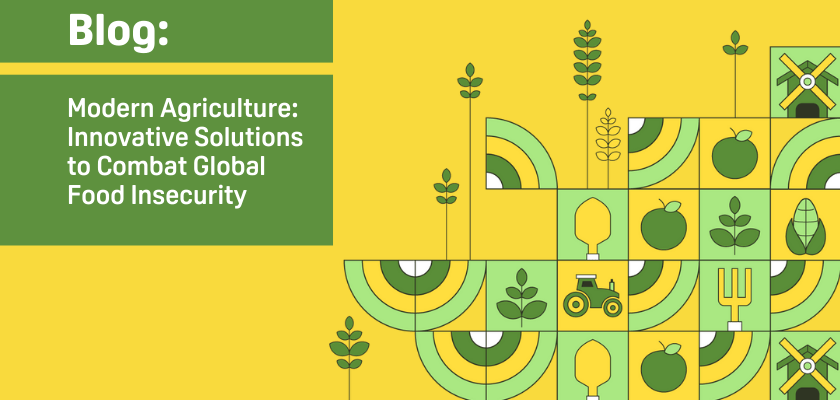
Modern Agriculture: Innovative Solutions to Combat Global Food Insecurity
Modern agriculture combats global food insecurity with precision agriculture, sustainable practices, and biotechnology. Tools like IoT, automation, and crop innovations optimize resource use, enhance resilience, and ensure stable food supplies. By integrating smart technologies, agribusinesses address challenges like climate change and resource scarcity, paving the way for a sustainable food future.
